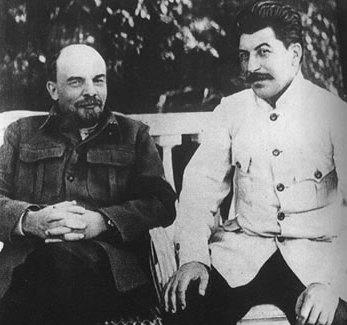
There was something that impressed Lenin with Stalin.
Revolution is indispensable to passion, but it is even more inseparable from money, and Lenin knows this very well. Without money, we would not be able to run party newspapers and periodicals, and we would not be able to produce theoretical works, and our propaganda work would come to a standstill. Without money, the organization will not develop at all, and revolutionary activities will be difficult to carry out. The armed insurrection that Lenin had been looking forward to, there was no huge amount of money, where there were guns. The amount of funds also determines the victory or defeat of Lenin's inner-party struggle with the Mensheviks, because without money, even the travel expenses of the deputies to the Party Congress cannot afford to pay, which is directly related to the number of votes at the time of voting, and naturally determines who can control the Central Committee of the Social-Democracy.
Stalin in his youth
Doer "Koba"
Lenin drew up plans for "expropriation", "guerrillaism", and "fighting", which were, to put it bluntly, to rob banks, post offices, cargo ships, to declare revolution and obtain funds through assassinations, explosions, etc. Lenin appointed Stalin, then under the pseudonym "Koba", to lead the "combat brigade" in the Caucasus, and Koba did not fail to live up to Lenin's trust, directing the combat teams to carry out one robbery after another, and sending huge sums of money to Kuokala, finland, the seat of the Bolshevik Party Central Committee.
One of the biggest "deprivation" activities was the "Robbery of Yerevan Square in Tbilisi". In June 1907, Stalin's students, Kamo, a member of the combat team disguised as a Tsarist general, threw a bomb at a cash truck in the square, and after killing the money carrier, they obtained several bags of money, amounting to 250,000 rubles. According to Trotsky, between 1905 and 1907, more than 1,000 such "expropriations" were carried out in the Caucasus, large and small.
These activities shocked the Mensheviks and other Marxist factions, and they lashed out at Lenin and the Bolsheviks, believing that they had discredited the revolutionaries and reduced the organization to "bandits" that even most of the Bolshevik Party members at the time could not accept. While the police were wanting Stalin, the Mensheviks, in a fit of rage, announced stalin's expulsion from the party. However, Lenin firmly remembered Stalin as a "doer", and those "pen holders" in the Party could bear the burden of humiliation and burden.
Kazbeg, a Georgian writer who had a deep influence on the young Stalin
"Great Georgian"
In 1911, Lenin founded a cadre training school in Lonremou, on the outskirts of Paris, to inculcate in Party members revolutionary theory, means, and the principle of infinite loyalty, and at that time there was a desperate need for manpower, and Lenin first thought of Stalin. In February 1912, at the recommendation of Lenin and Zinoviev in Paris, Stalin entered the Central Committee of the Bolshevik Party, and after years of hard work, Stalin was rewarded and finally joined the leadership of the Party and came to work in Petersburg, the capital of Russia.
It was in the same year that Dzhugashvili officially adopted the name "Stalin", which evolved from the Russian word for "steel". In 1913, Stalin published the article "The National Question and the Social Democratic Labour Party", which further consolidated his relationship with Lenin. Lenin's letter to Gorky described Stalin as "an excellent Georgian.""